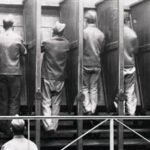A GP has written of his struggle to keep his bulk-billing practices open. The system can’t depend on sacrifice, from him or from junior doctors.
This week, yet another GP wrote about his personal dilemma and why he feels unable to walk away from bulk billing.
Dr Tom Lieng is based in lower-SES suburbs of Sydney, owning three practices in Lurnea, Liverpool and Ingleburn, all of which have been universally bulk billing until recently, if I read his article right.
Dr Lieng speaks of approaching his contractor doctors about a 1% rise in management fee paid to the centre, upon which three of them decided to leave established practices for more lucrative pastures.
He also implemented a $20 gap that excluded various categories of patients traditionally seen to be more vulnerable – pensioners, healthcare card holders, children – and found that they made up 95% of their demographic and would remain eligible for bulk billing under the new policy.
He speaks of recently closing his Ingleburn practice, on which he was paying rent, while maintaining his Lurnea and Liverpool practices, which are in premises he owns and are therefore rent-free.
He estimates the cost to run each centre on “skeletal staff” at around $200,000 a year, requiring three full-time GPs to cover costs.
“The closure is the result of economic forces, the fact that GPs will generally choose an area of higher private billing in which to practise,” he writes. “And this has serious implications.
“GP practices in tough areas like mine are no longer financially viable.
“As the owner of two practices at Lurnea and Liverpool, I am in a fortunate situation that I own the buildings. I don’t have to pay rent … But that is the product of luck, not Medicare … We need changes in the system. We need drastically increased Medicare rebates, and we need the payroll tax to be ditched.”
The comments section is awash with the usual opinions (including mine) about charging appropriately, how dentists work in these areas and still make enough money, and so on.
Dr Lieng is of an age where he says he could retire but won’t (yet). He has more days where it seems, he’s tempted but hasn’t done it yet as he feels his patients need him. And while he can see that the move away from bulk billing is the right one in many ways, he feels for his patients in these demographics.
My contention, with respect to Dr Lieng, is the following.
Dr Lieng, if he were to retire now, would presumably be able to live off passive income from rent on his buildings that he owns, in addition to any other assets he’s hopefully accumulated for his retirement over the span of his career. Most young doctors these days, especially FRACGPs in universally bulk billing (UBB) practices, can’t say the same. In the last 12-24 months I’ve seen many young doctors with a strong socialist outlook on life who’ve bitten the bullet and moved to charging gap fees, in part due to the recognition that UBB simply does not pay their own bills and it does not allow them to give the kind of care they want to be able to give their patients.
Additionally, with respect, while I appreciate that he feels very strongly for his patients, this is yet another way doctors such as Dr Lieng are subsidising patients and their care due to governmental failure to step up.
Already, his doctors have been accepting a 53% discount on all consultations and then paying a service fee for this doubtful privilege.
The fact he is able to stay open at two of his three premises is largely due to the fact that he is giving the buildings to the medical centre for free and making no money off them to stay open.
The government doesn’t know (or care) that he is making this sacrifice, and presumably nor do his patients.
He speaks of living to see another day, of not giving up and of saving the speciality of general practice: “I’m not defeatist. We have got to continue fighting.
“Not for us, but for our colleagues’ future. I am old enough to retire, but they are not.”
My honest – unsolicited – opinion?
First, what he is fighting is a losing battle. Butler has already ruled out simply increasing rebates. And if he did, it’s unlikely it would be enough to meet the demand for “free” healthcare, and there would still be no guarantee of future freezes.
But more importantly, while Dr Lieng is being selfless in forgoing potential income, he’s also expecting other, younger doctors to forgo income along with him – young people who, if they bulk bill, may never be in his position of owning multiple properties or even their own houses. The “colleagues’ future” he talks about is working for Medicare crumbs.
This is not how you attract young doctors to general practice.
The way we live to see another day, to fight for our patients is to stop these cartwheels and obstacle course and let the chips fall where they may.
Fast, good, cheap. At best you can have two of those three, and if practices like Dr Lieng’s want to encourage younger GPs to join the speciality, we have to stop expecting them to work for crumbs.
We have to examine what it is within us that makes us want to rescue people at personal cost to us and the future of the speciality we hold dear and allow ourselves to do what is for the greater, longterm good.
If enough people stop with the emotional discounting and rescuing, and allow the system to crumble, then perhaps the government will pay attention. What that will look like, I don’t know – perhaps more fragmentation of care, via UCCs and non-GPs, but that is happening anyway.
At some point if we want to keep our speciality alive, we need to make it an appealing path for bright young people – not a path of sacrifice and charity. At some point we need to consider whether we are the biggest impediment to the success and survival of the speciality we say we love.
Dr Imaan Joshi is a Sydney GP; she tweets @imaanjoshi.





